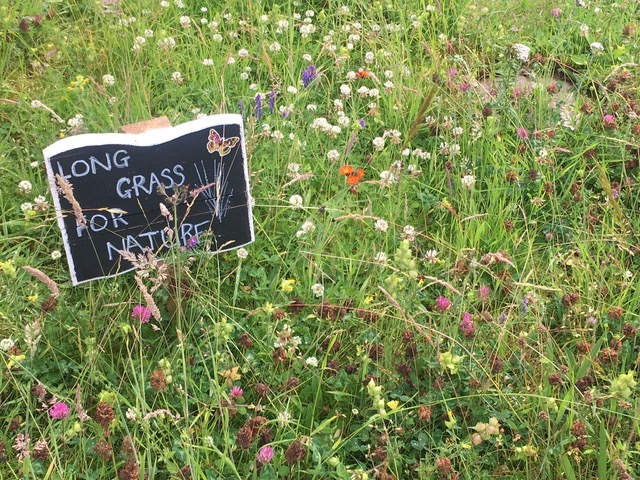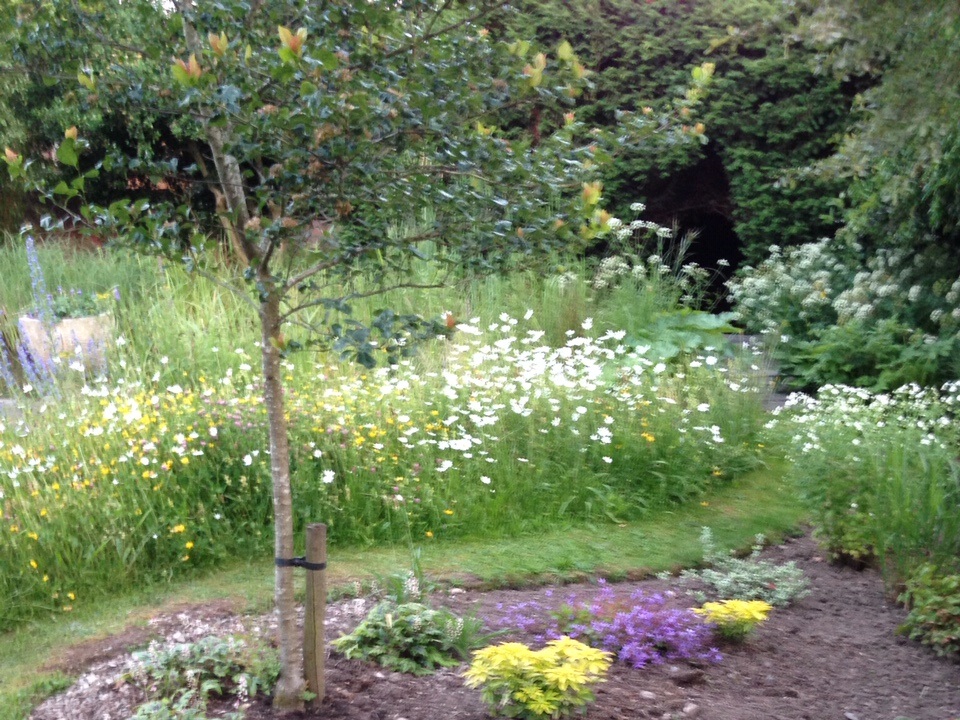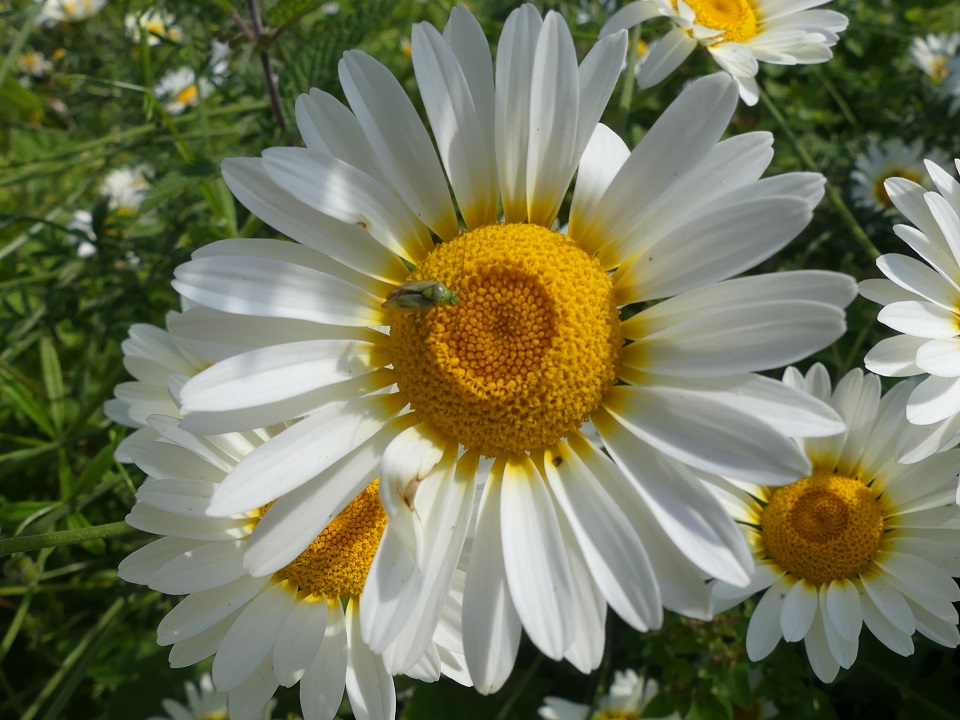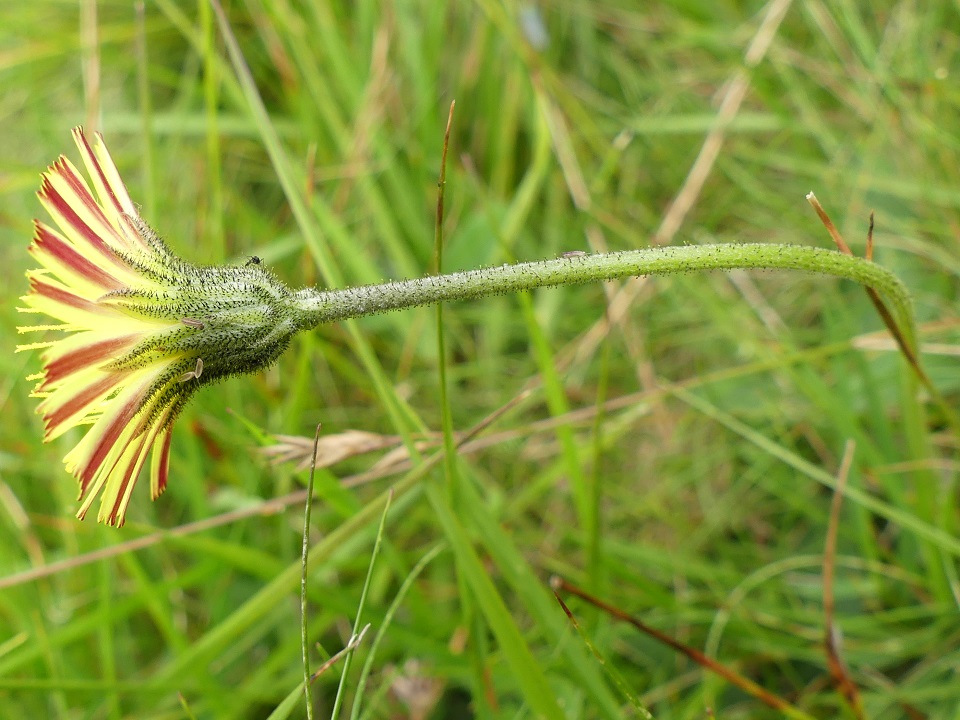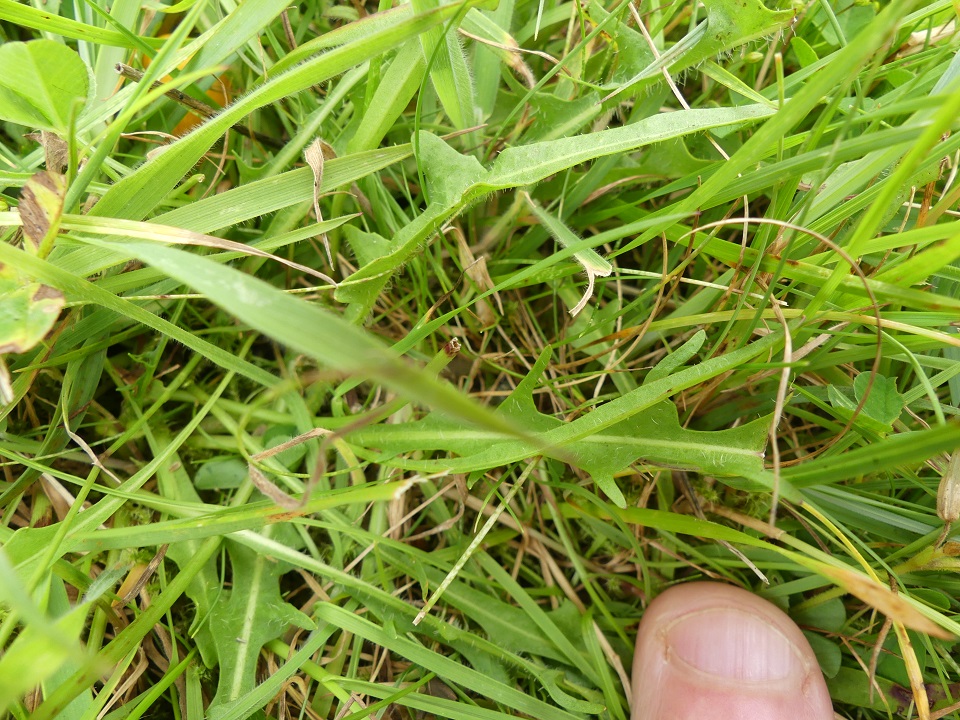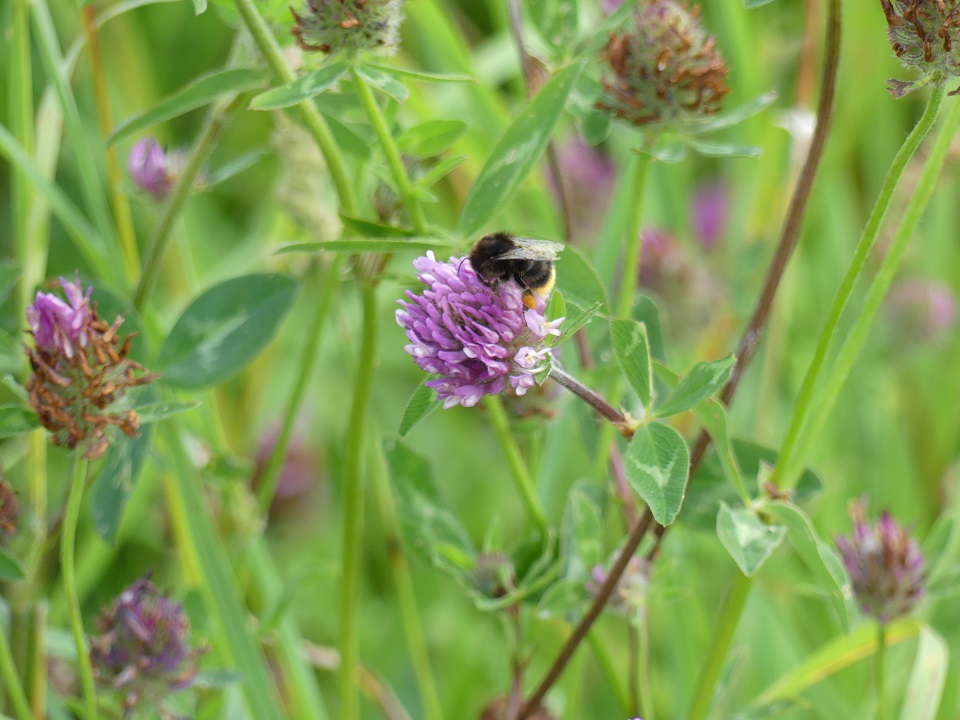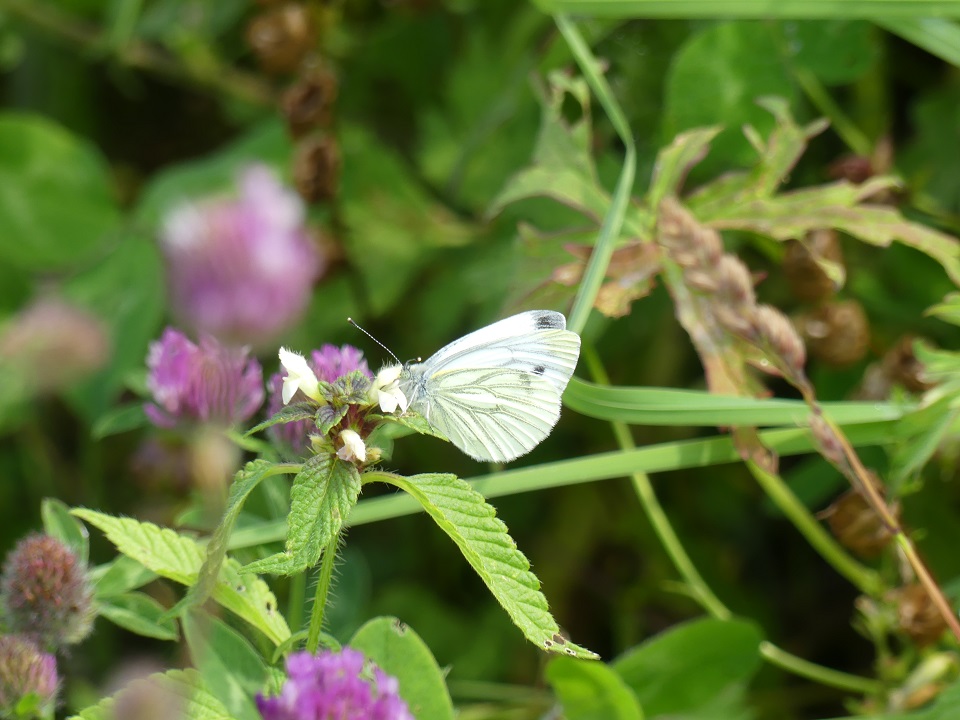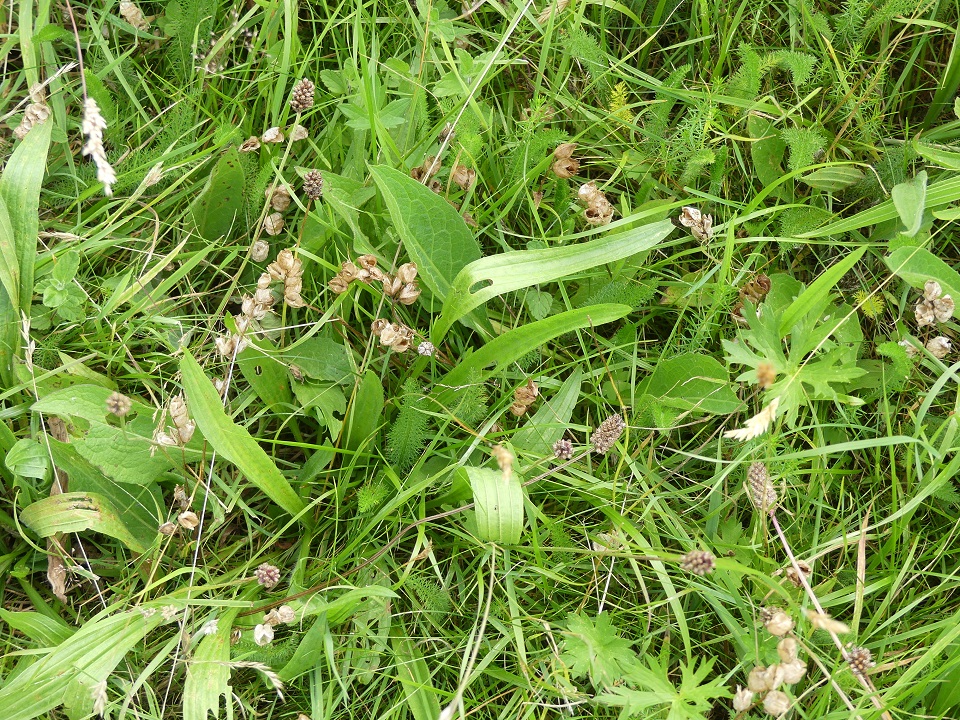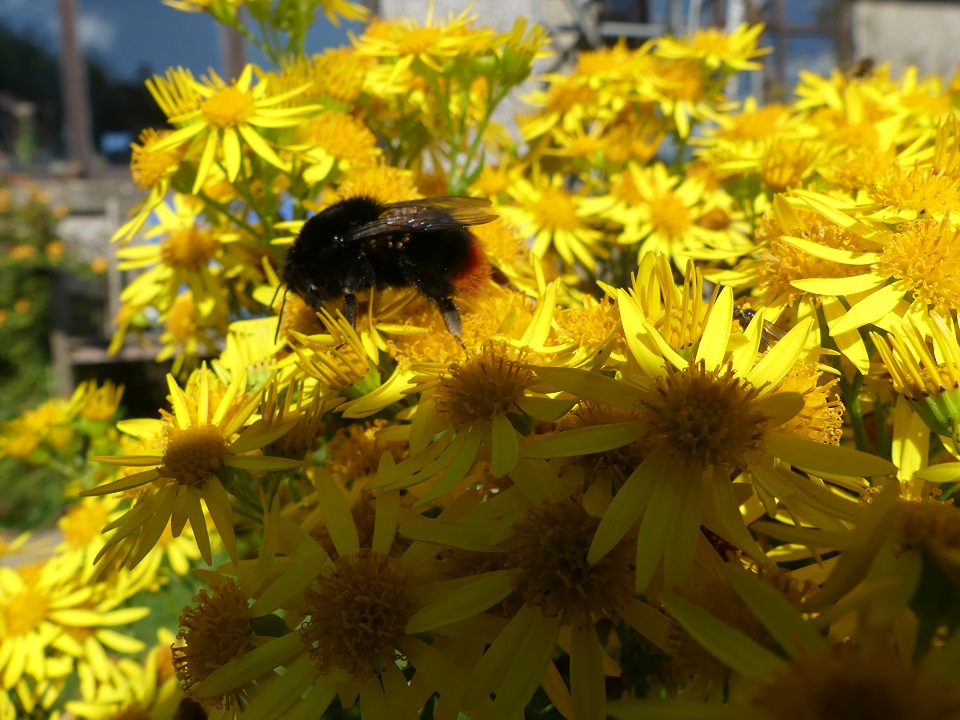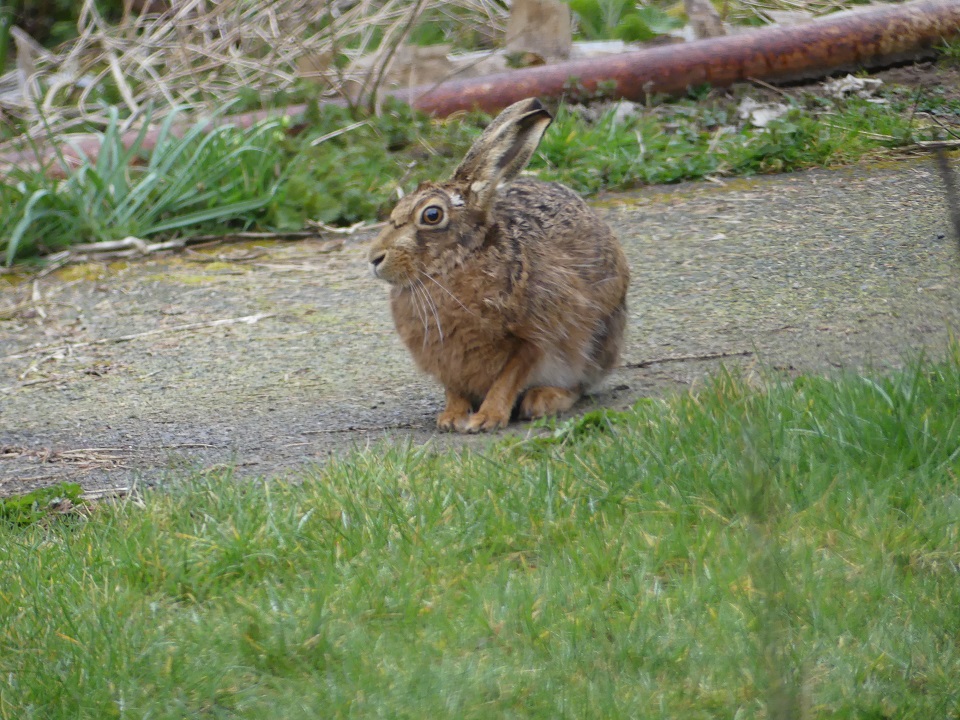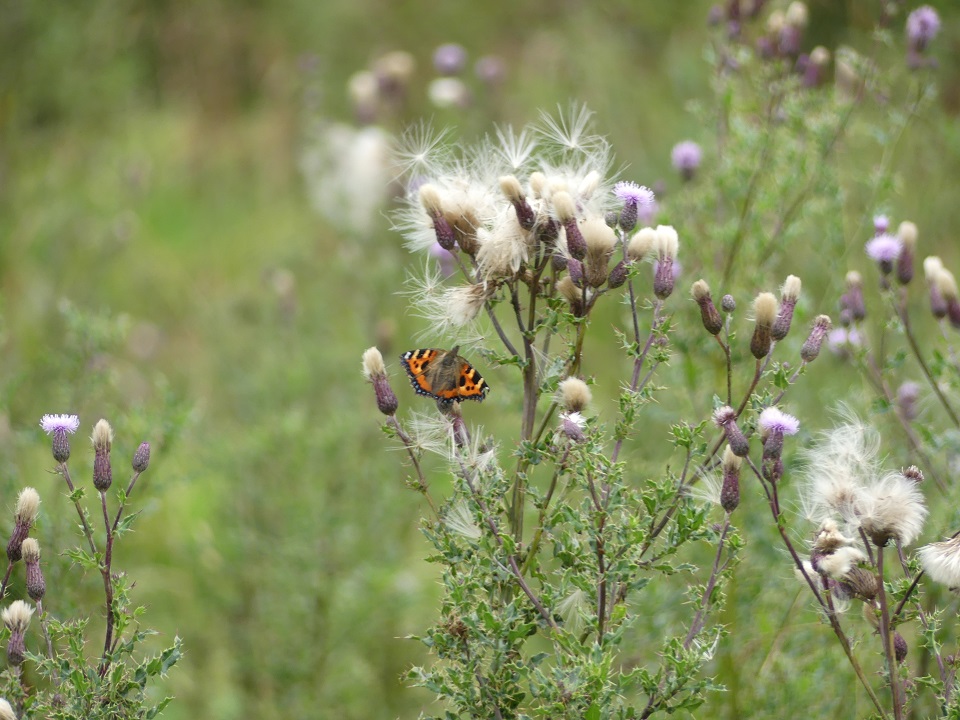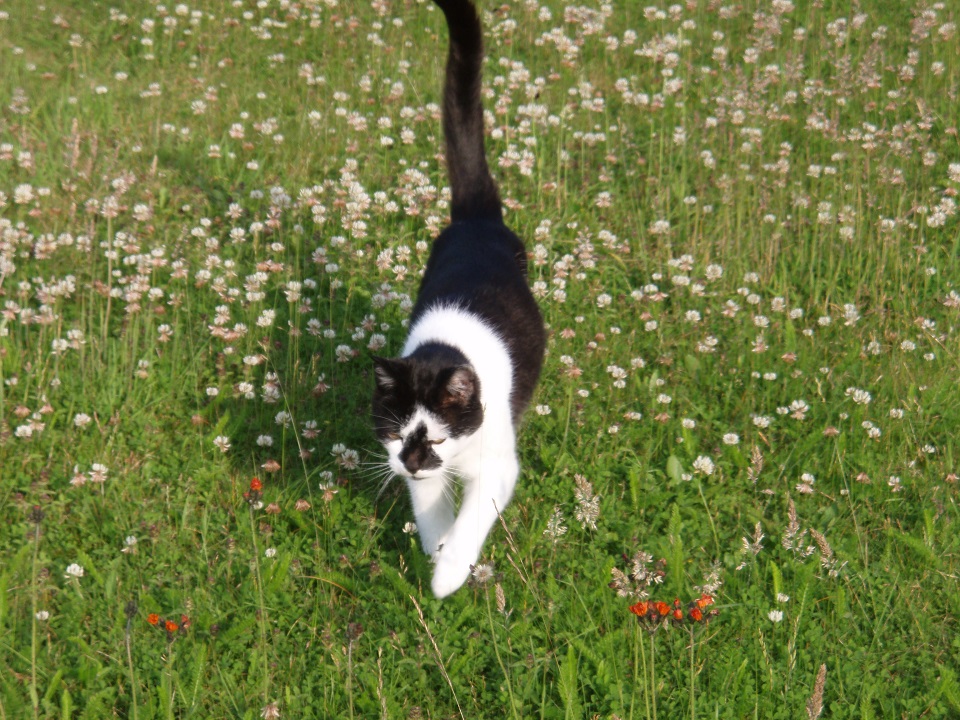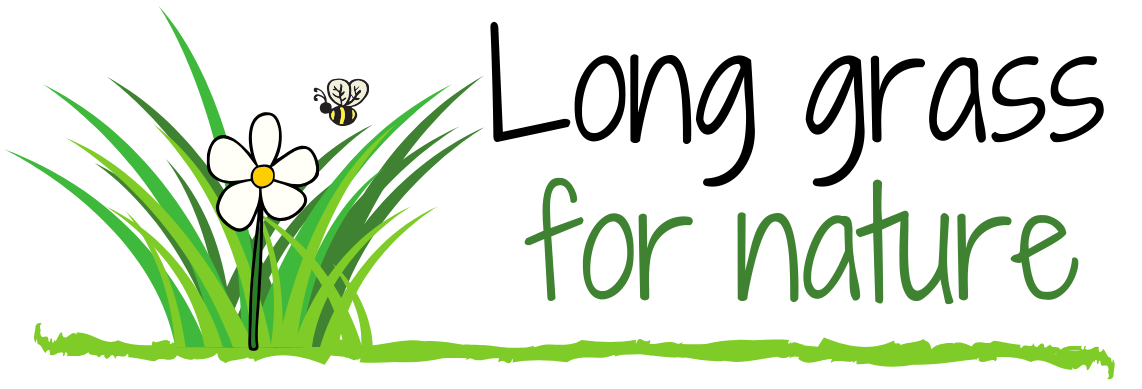
Let's go a bit wild on our lawns, greens and verges
To increase biodiversity, we’d like to encourage people in Penrith and Eden District to let their grass grow longer during the summer - lawns, verges and common areas such as village greens.
- What will appear on your new mini-meadow? Daisies, dandelions, buttercups and more?
- Gardens are important places for wildlife and plants to live.
- You can provide a safe haven for bees, butterflies and the rest of the natural ecosystem.
- You can make it even better by planting some suitable native wild flowers and by providing wild areas, a pond and trees.
- Relax in your living lawn - colourful and full of life!
- Keep a count of what flowers grow and the insects you see - tell us what you see please.
Show and Tell!
Long grass may look untidy sometimes - but untidiness is great. And nettles are very good for wildlife - and you can eat the young leaves.
Your neighbours will understand if you explain - use a sign like this -
Or make a Blue Campaign heart to put in the ground instead.
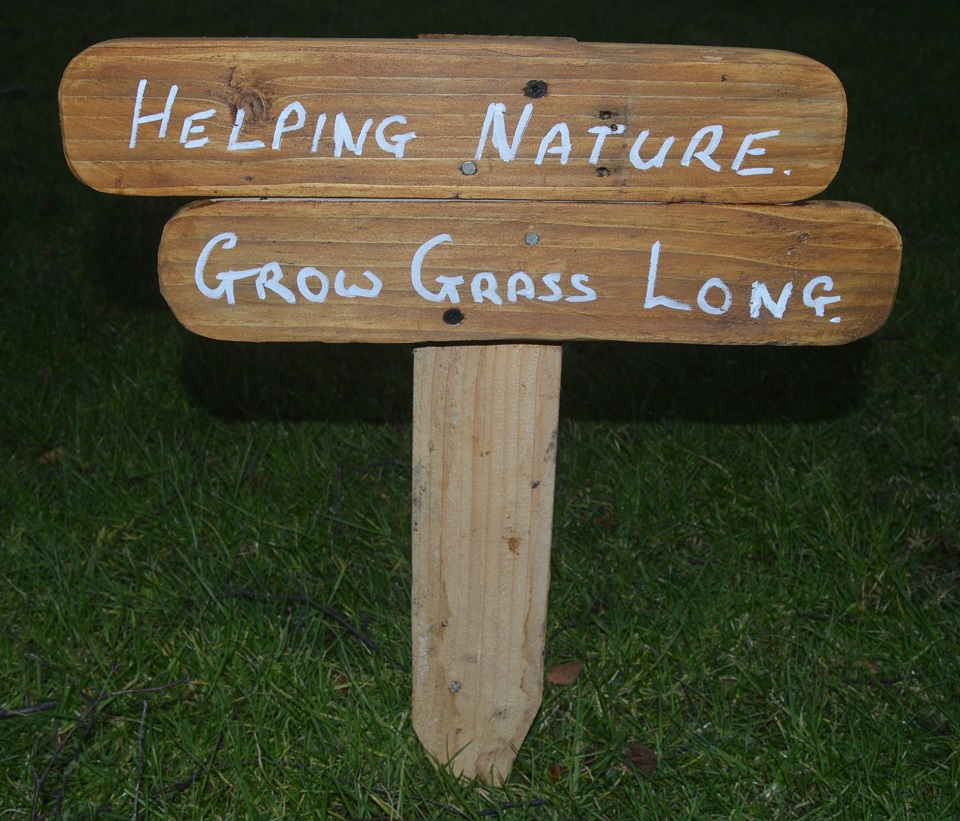
No Mow May, June and July!
We're asking everyone with a lawn in Eden District to let the grass grow long over the summer. This will give more chances for insects and pollinators to live right next to you.
Many friends of PACT already do this and they have wonderful spaces that are a joy to see and explore in the summer.
Maureen in Penrith says: We do mow some pathways through the wilderness, and round the edges of the borders. The wild flowers change from year to year depending on how it reseeds and as you walk along the paths the humming of the bees is deafening!
Jaki at Blencarn says: "We have a patch that we've let grow wild for several years, to hopefully build up the layers of grass there, so that rodents can live there, which in turn helps owls. We attracted a hare to live there last summer!"
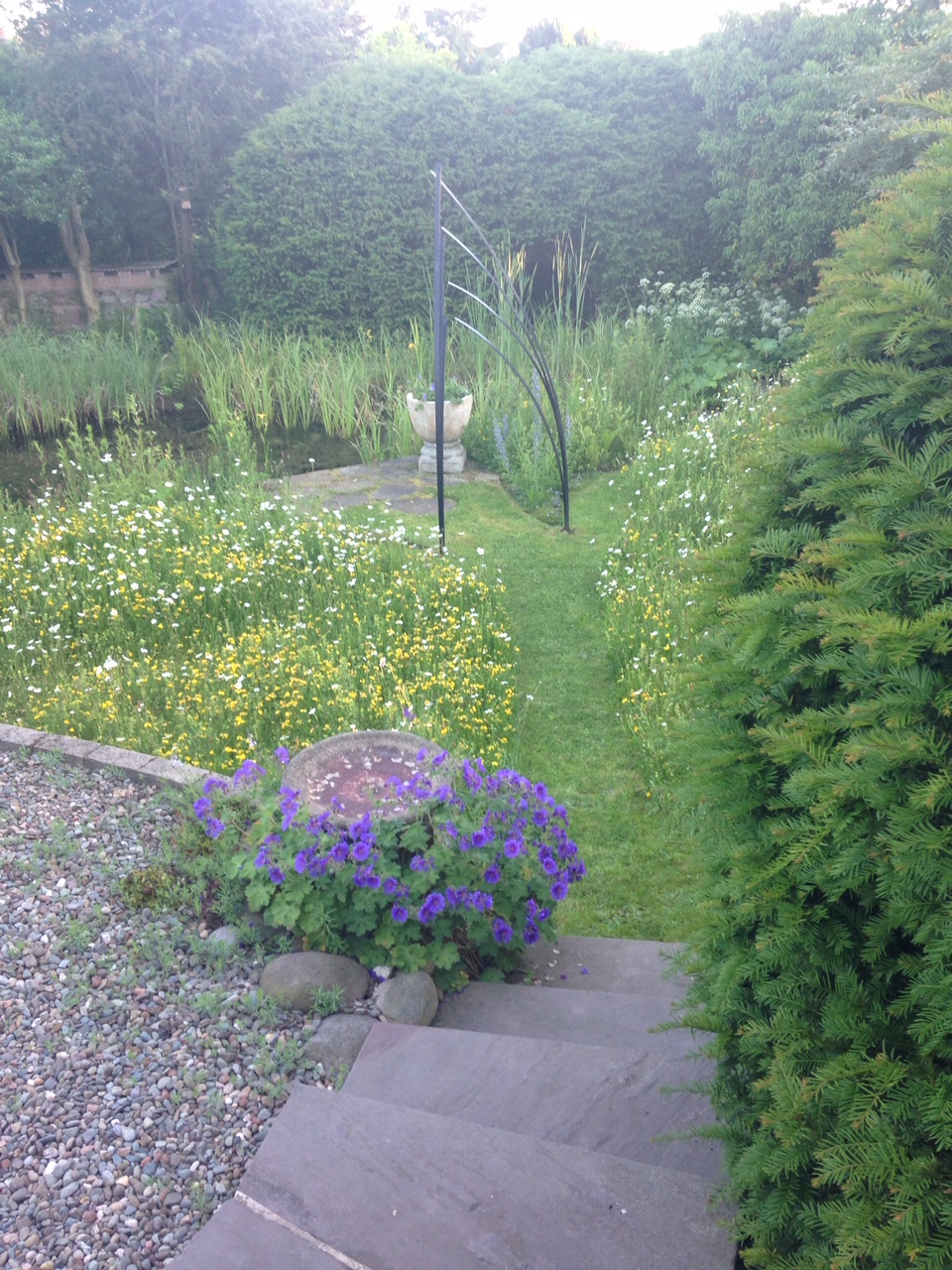
Christine's orchids
When I moved into this house the grass hadn’t been cut for a couple of months and the lawn was full of flowers. It seemed a shame to cut them, so I cut a path round leaving a big patch in the middle. One orchid appeared the first summer, last summer there were five!
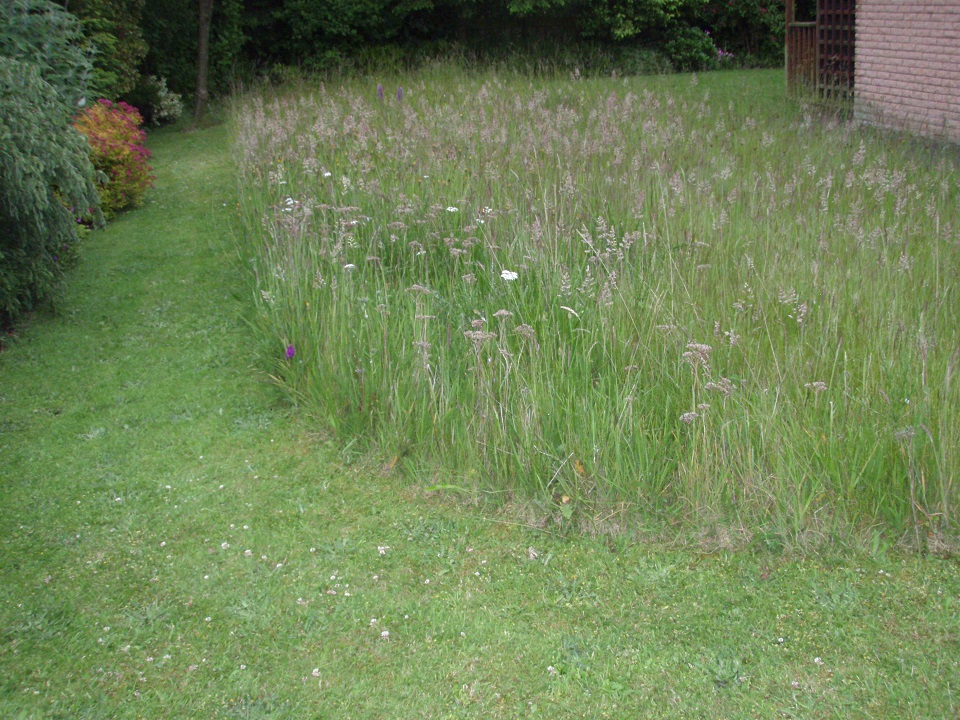
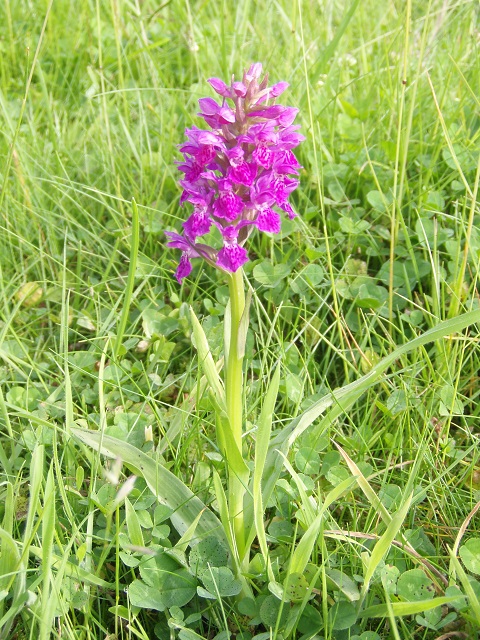
Citizen Science
Why not try to identify your flowers and insects?
- It's very rewarding to know what's on your patch - and it helps science too!
- Check out Cumbria Wildlife Trust's Get Cumbria Buzzing project and download their wild bee guide and their leaflet on identifying hay meadow wild flowers .
- Grab the Get Cumbria Buzzing recording form from Cumbria Bioversity Data Centre and note down what you see. They'd love records from all over Cumbria.
- Alternatively, join the garden wildflower count for your garden with the Botanical Society of Britain & Ireland.
- Take some photos and share with PACT on Facebook or PACT on Twitter.
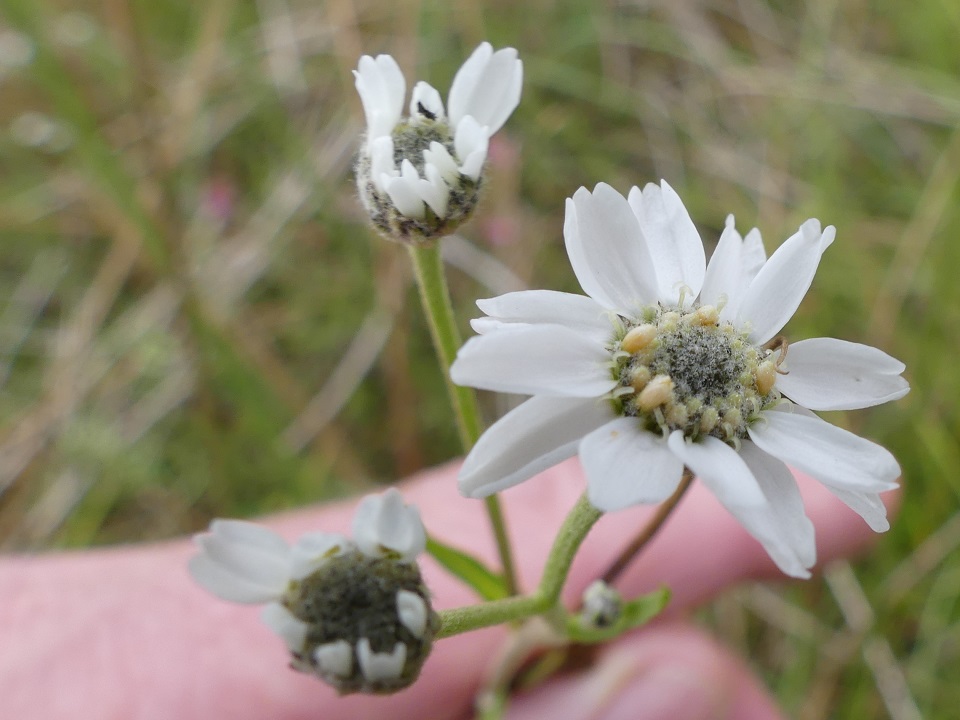
Community spaces can also help nature
We're also asking parishes to make space for nature on their greens and verges.
- Greens are lovely with wild flowers, so cut the grass only once or twice a year, and remove the mowings.
- Leave paths for everyone to explore your patch, even when it's wet.
- You can sow native wild flowers such as Yellow rattle, Betony and Oxeye daisy.
Bomby Green (pictured) at Bampton near Haweswater has been managed by its commoners as a wildflower meadow since 2009. They had help at the start from Cumbria Wildlife Trust's Hay Meadow Project. It is now a valued resource that looks great all year round and provides plenty of good habitat for insects.
- Management guide: How to manage and restore hay meadows PDF
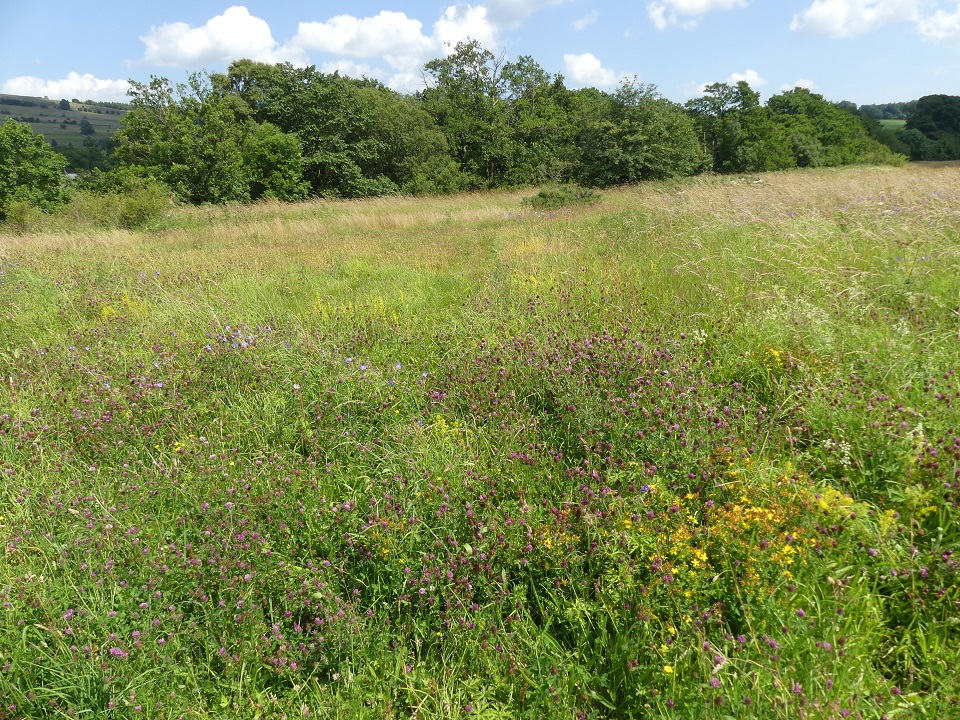
Verges are vital wildlife corridors
Road verges are good places for nature even though they are right next to the traffic.
- Sometimes growth needs cut back to help visibility for traffic - try to leave this until August or September.
- Please remove any cuttings to avoid a layer of thatch.
- Verges and railway lines help connect wild places.
- Verges are best left without being planted - native wild flowers will find their way there.
- Management guide: Managing Road Verges for Pollinators - PDF.
- Cumbria County Council: Grass cutting and roadside verges and Caring for Cumbria’s roadside verges (PDF).
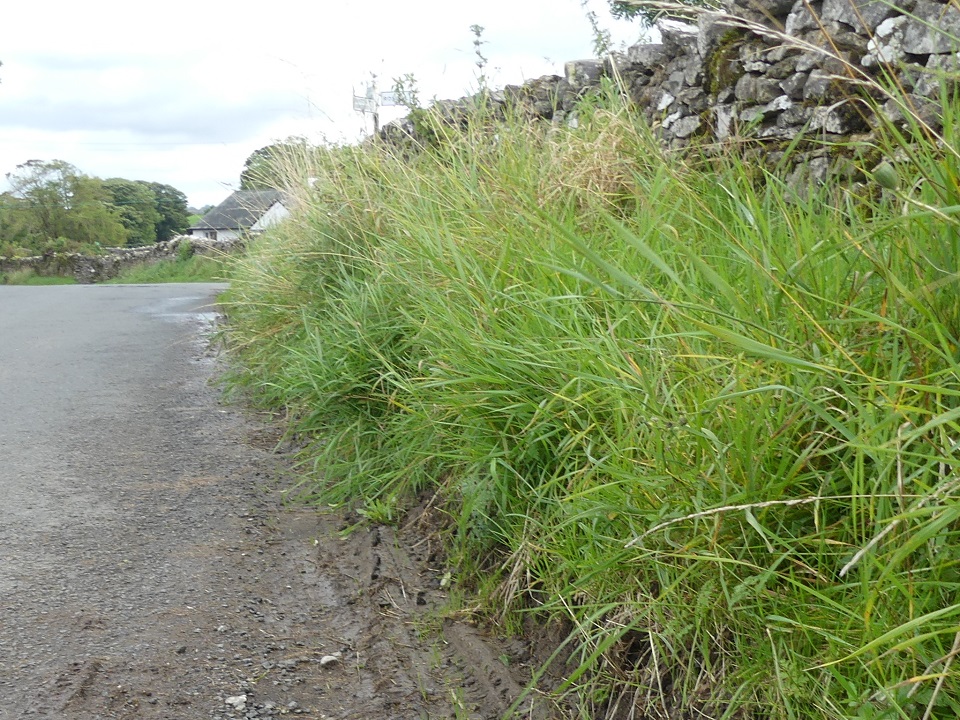
More information
- Various local councils have declared Climate and Ecological emergencies. More info about the ecological emergency.
- UN scientists say: "Nature is declining globally at rates unprecedented in human history - and the rate of species extinctions is accelerating, with grave impacts on people around the world now likely."
- "In the UK, numbers of butterflies of the 'wider countryside' fell in abundance by an estimated 46% between 1976 and 2017," and "habitat specialists fell more markedly, by 77% over the same period"
- "Nationally, 23 bee and flower-visiting wasp species have gone extinct in the UK since 1850"


